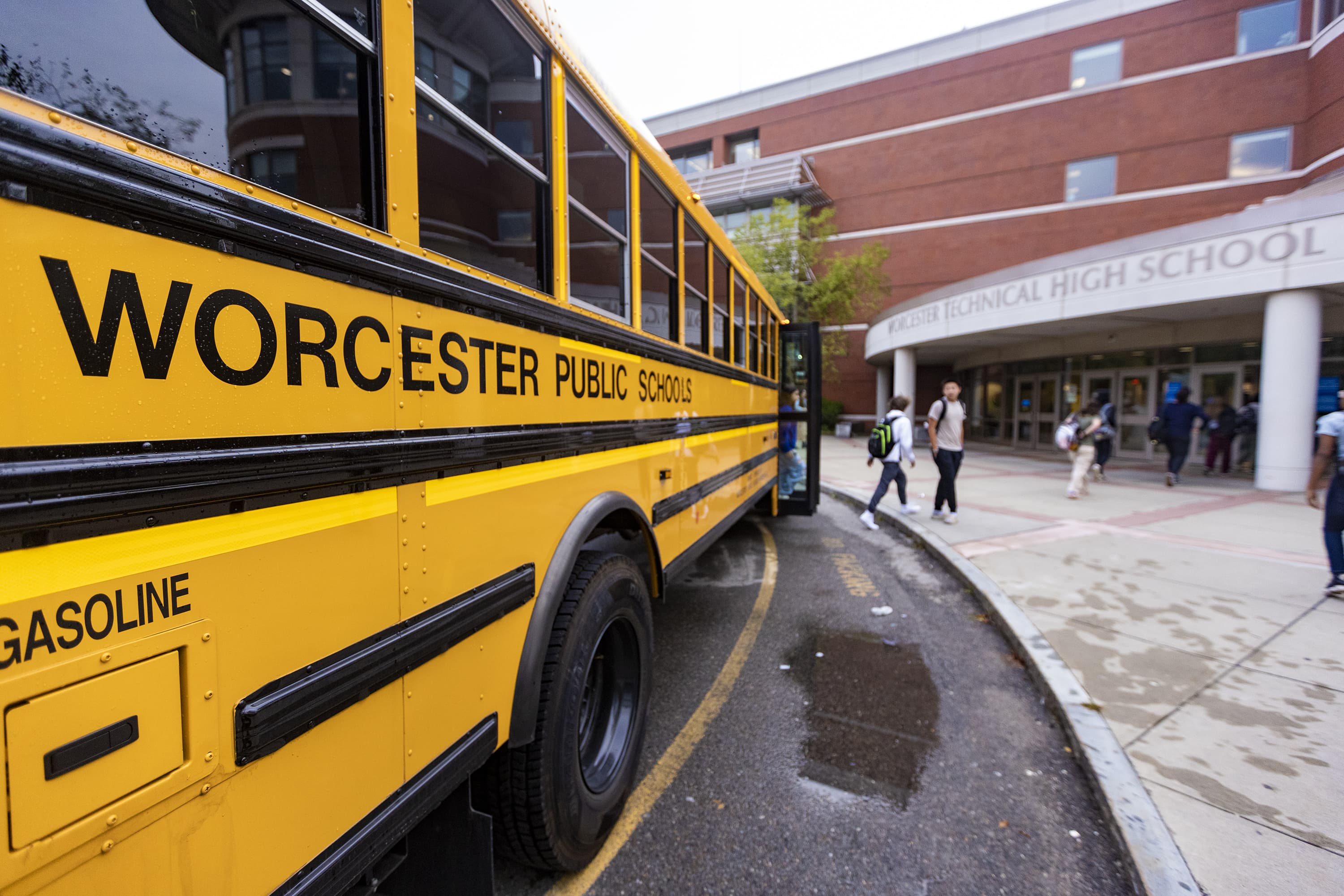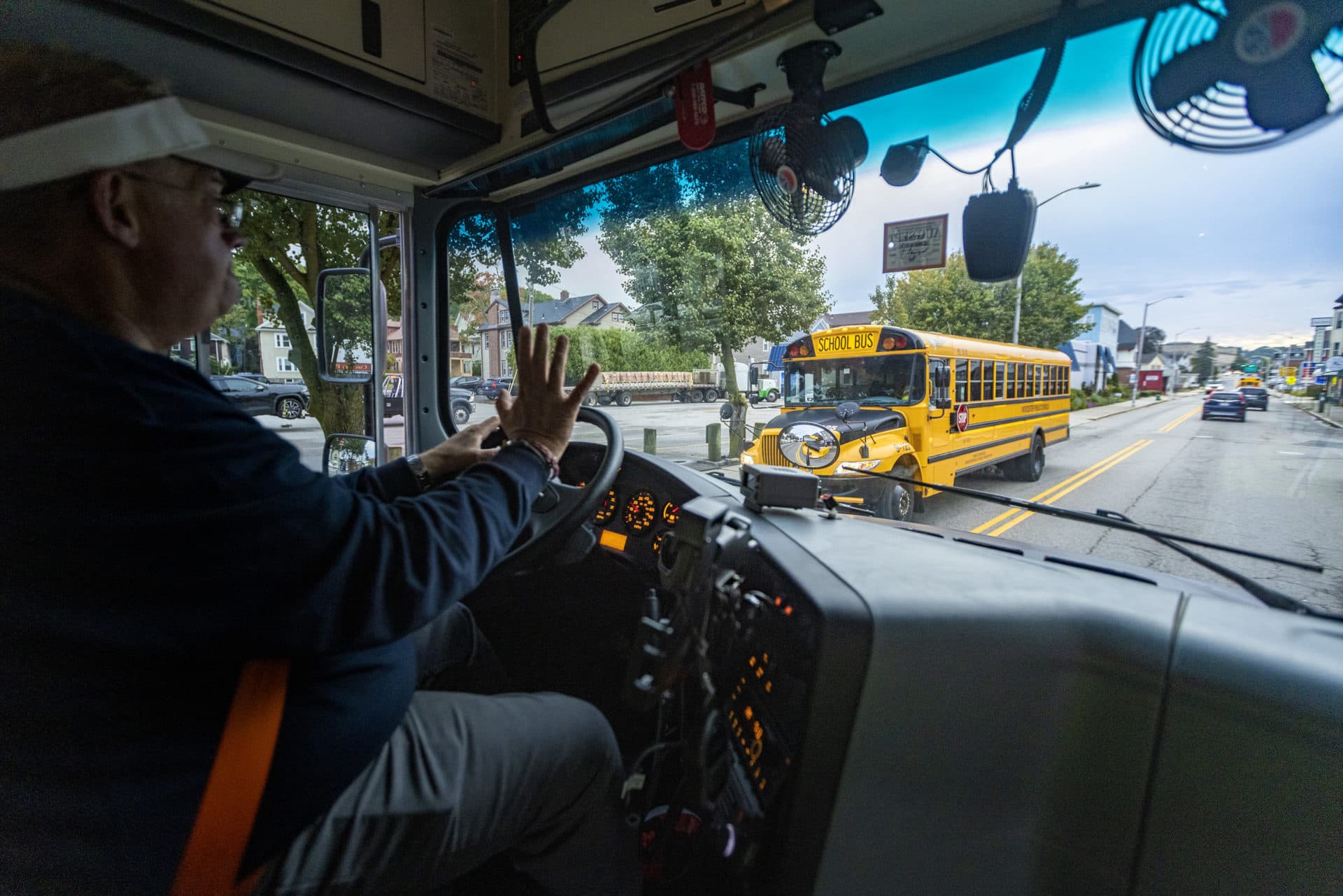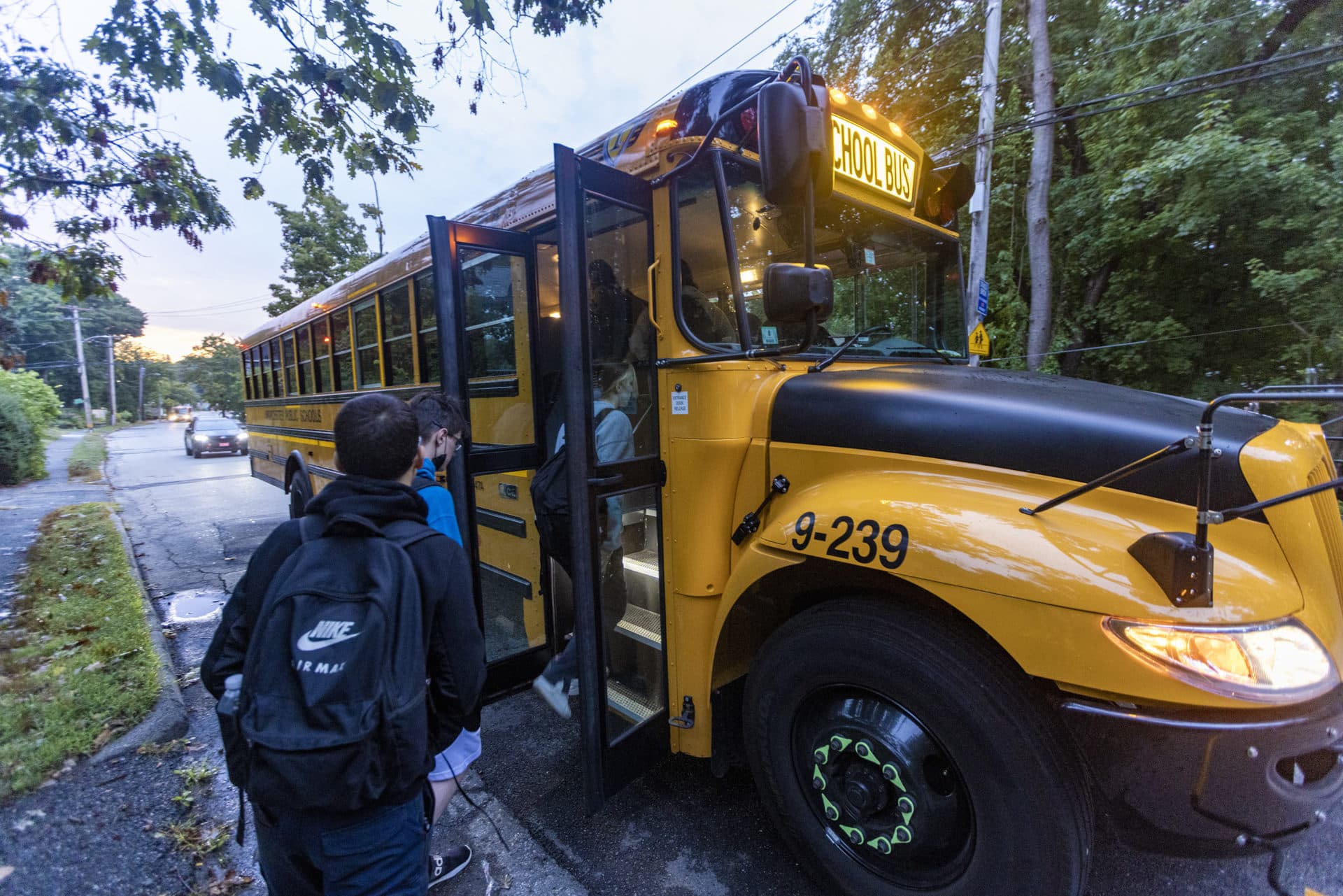Advertisement
Worcester schools' fix for bus delays? Take over the fleet

This is the second of two stories. The first story is here.
Worcester bus driver Jason Crue says he missed his calling to become a teacher. But he loves that his job lets him support students in some way each day.
“I love coaching. I love just being with the kids,” said Crue during a recent ride-along. “Everybody has a story.”
This is Crue's 11th year driving buses. The job hasn’t changed much, except this year, he’s got a new boss: Worcester Public Schools.

Worcester, the state’s third-largest district, for decades worked with private bus companies to transport many of its 24,000 students to class. And, to reduce delays and improve communication with families, the district took control of bus operations this school year.
So far, students on Crue’s hour-long route say the move has led to noticeable improvements.
"It's a lot better than last year [when] I missed most of first period a lot," said Phoenix Johnson, a ninth grader at Worcester Tech. She says now she almost always makes it to school before the 7:20 a.m. bell.
Most school districts in Massachusetts outsource bus transportation. However, a few school systems, tired of unreliable service due to a shrinking industry and national driver shortage, switched to managing their own bus fleets. Worcester and Brockton schools became the latest to adopt the DIY bus system strategy.
Advertisement
Making the switch in Worcester wasn't easy. While the city already handled route planning and rides for athletes and students with disabilities, school officials needed to find off-site lots to store its buses and hire a lot of drivers.
The district purchased 165 buses with $16.5 million in federal relief funds it got during the height of the COVID-19 pandemic. The new vehicles were a significant addition to the 79 buses the district already owned or leased.
Crue said he loves the new safety features on the 50 seater bus he usually drives, such as a lane departure warning system and speed limit monitor.
Students and parents who rely on the school bus say they've noticed a lot of other benefits: the new system gets kids to class on time – sometimes even a bit early.
Tenth grader Simon Restrepo said it’s been a game-changer for his grades. Arriving to first period on time helps him concentrate better in class.
"It’s been a very big improvement from years prior, and I really like it," Restrepo said.
A 'more direct line of accountability'
Worcester's journey to bring its bus service in-house starts many years back.
The Worcester School Committee started exploring the idea about seven years ago as frustration mounted with its private contractor of 17 years, Durham School Services.
"We were frustrated with everything, from [the company] not letting us know when they didn’t have enough bus drivers, not letting us know when buses were going to be late," said school committee member Tracy Novick. "They wouldn’t have enough people staffing phones."
Durham School Services did not respond to requests for comment.
Worcester school leaders estimated the shift saved the school system about $3.5 million this year. Part of those savings boosted driver pay, from $24 an hour under Durham to about $30 an hour.
Crue, the bus driver, said he appreciates the raise. For him, though, the biggest change was not having to deal with any more finger-pointing between the school system and a bus contractor when something goes wrong.
"Now it’s all city," said Crue. "Questions have to be answered here. It's a total difference to what it was in the past."
He said that accountability lifted morale among drivers.

Many people in the school community also offered praise for the morning pick-up times. Several parents noted their appreciation for how district employees now take questions and complaints about late buses at a central office. In previous years, only school staffers were allowed to call the vendor with issues.
"[District officials] are encouraging families and kids to call them directly," said Michelle Phenix, assistant principal at Worcester Tech. "Which saves us, the middle man, a lot of effort. That has been a huge positive."
Still, there are a few issues to work through. Afternoon pick-up needs some work.
"It’s been late every day," said Restrepo, the Worcester Tech sophomore. "But I know that administrators are working on that to improve the scheduling and the routes."
Deputy Superintendent Brian Allen knows there are still problems that need to be ironed out. He says he’s been sharing the lessons he’s learned with other districts interested in running their own buses, too.
“I don’t think every district can do it themselves, because of their size and other hurdles,” Allen said.
Still, while only a handful of districts are trying it out, Allen says that based on the “great interest” he’s heard from other communities, “we do see this as a trend.”
